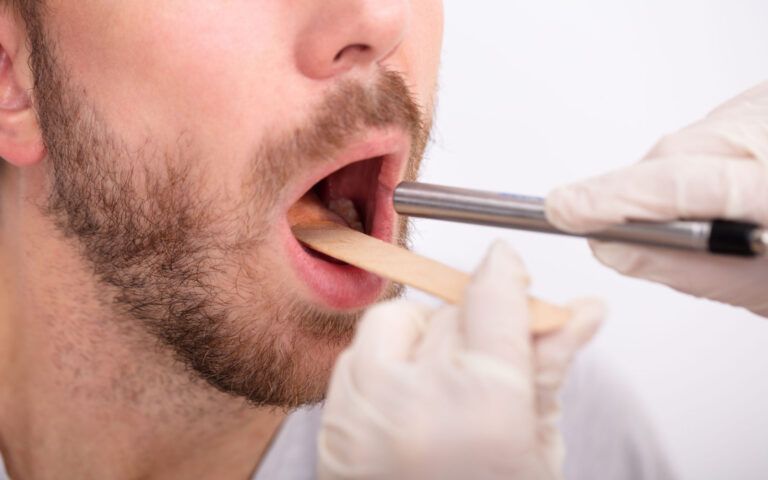“Covid Tongue” is a painful side effect of Covid-19. This condition refers to when the tongue is swollen and inflamed. Often, patients experience bumps or ulcers on the tongue as well. Sometimes, the tongue is white with a patchy appearance. Other times, the tongue is red and swollen. Covid Tongue is often the cause of a patient’s inability to taste food when they have Covid.
Swollen Tongue and the Link to Covid
A swollen tongue doesn’t always indicate Covid. Many different diseases and viruses cause a swollen, inflamed tongue. If your tongue is swollen and inflamed, a Covid test doesn’t hurt, but it might not be the cause of the inflammation.
Cells contain enzymes called ACE receptors. SARS-CoV-2 attacks these enzymes, allowing the virus to attack the cells. When the virus attacks and replicates in the cells, illnesses are caused. The tongue holds many ACE receptors and is prime real estate for viruses. When a virus attaches to the ACE receptors in the tongue, bumps and inflammation are caused.
Does Covid Cause Muscle Pain?
Covid isn’t the only thing that causes a swollen tongue. Glossitis is another condition that can cause inflammation in the tongue. Often, glossitis presents as Covid tongue, causing a sore or swollen tongue. However, glossitis can appear due to many other factors. Sometimes, an allergic reaction to oral hygiene products or food can cause it. Other cases include skin conditions in the mouth, mouth injuries, hormones, or vitamin deficiencies. If your tongue is swollen, look for other symptoms of Covid to ensure that Covid is the culprit.
Treatments
While there aren’t any treatments specifically for Covid Tongue, there are options. Because Covid Tongue causes inflammation in the tongue, other remedies for swelling and inflammation can provide relief.
- Maintain good oral hygiene with products you aren’t allergic to.
- Avoid things that can cause tongue inflammation, including foods and substances.
- Continue any antibiotics you’ve been prescribed.
- Change your diet and take vitamins if you need to.
There is also the chance that the swelling and inflammation related to Covid would go away when treating Covid. When suffering from Covid-19, the CDC suggests staying rested, hydrating, and taking cold medication are helpful ways to treat the symptoms.
You Might Have Covid Tongue. What Now?
If you notice that your tongue looks unusual or is painful and inflamed, it might indicate another virus. It could even be something you ate that didn’t agree with you. Different viruses that cause inflammation of the tongue aren’t always specific. Inflammation in the tongue can increase suspicion of coronavirus, but other symptoms lead to that diagnosis instead.
Covid has many symptoms, but according to the CDC, there are more problematic symptoms you should look out for, including:
- High fever accompanied by chills
- Exhaustion and fatigue
- Bodily aches and headaches
- Sore throat
- Congestion of the nose and a runny nose
- Nausea and vomiting
- Diarrhea
The bottom line is that you don’t want to ignore bumps or inflammation of your tongue—but don’t panic if you develop one of these symptoms, either.
If you notice that you have bumps, ulcers, or inflammation of the tongue, don’t ignore them. They might be Covid, but there’s no reason to panic if you experience these symptoms either.
If You Think You Have Covid, Contact a Physician
If you notice the symptoms of Covid Tongue and suspect you have Covid, you should get tested for Covid as soon as possible. Even if the cause of your tongue’s inflammation isn’t Covid, you might still have the virus. But even if you don’t have Covid Tongue and are presenting other symptoms of Covid, reach out to a physician for a Covid test.




